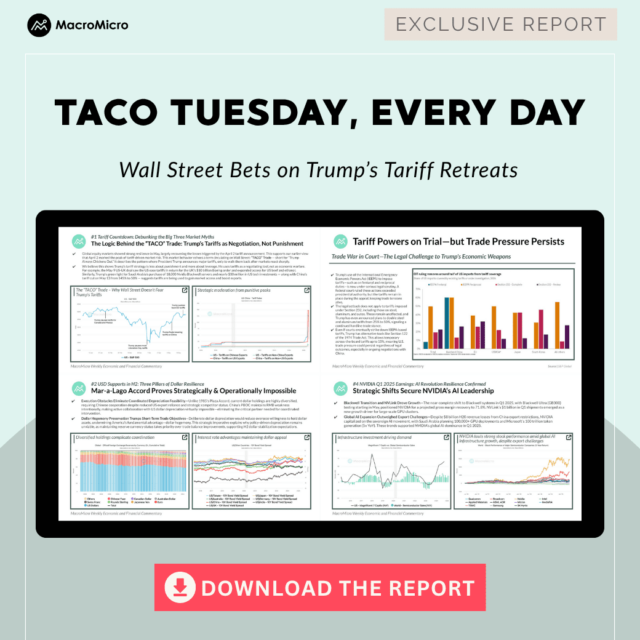Markets Respond to Trump’s Tariff Decisions
Recent developments regarding tariffs by President Trump have created a new buzz on Wall Street, leading to a noticeable uptick in stock markets. As a light-hearted yet pointed acronym surfaces among market analysts, it encapsulates the ongoing uncertainty tied to the administration’s trade strategies: TACO, which humorously stands for “Trump Always Chickens Out.” This term, introduced by Financial Times columnist Robert Armstrong, refers to the market’s reaction of initially declining when new tariffs are announced, only to bounce back once Trump hints at a reduction or delay.
Tariff Adjustments Spark Market Movement
Armstrong’s observation follows recent decisions by President Trump to pause tariff increases on significant trading partners. On May 12, he opted for a 90-day suspension of the proposed 145% tariffs on goods from China. Just a few weeks later, on May 26, he announced a delay in the implementation of 50% tariffs on imports from the European Union, pushing the deadline back to July. Consequently, stock markets experienced a surge in confidence following these announcements.
As Armstrong noted, “The recent rally has a lot to do with markets realizing that the U.S. administration does not have a very high tolerance for market and economic pressure, and will be quick to back off when tariffs cause pain.” This trend fits the TACO theory—highlighting a growing pattern where investor sentiment shifts as they recognize the administration’s inclination to relent under pressure.
Market Reactions and Future Outlook
The market’s volatility was evident when it sharply dropped one Friday after Trump’s tariff declarations. However, following Mr. Trump’s announcement over Memorial Day Weekend that he would hold off on new tariffs for negotiations, U.S. markets rebounded strongly. The S&P 500 Index soared by 2.1% once trading resumed. When questioned about the TACO term during a recent press briefing, Trump dismissed it as a “nasty question,” emphasizing that his negotiations created the space for discussions with European partners.
“It’s called negotiation,” he stated. Acknowledging the criticism, he added, “[T]hey’ll say, ‘Oh, he was chicken.’ I usually have the opposite problem. They say, ‘You’re too tough, Mr. President.’” Trump’s remarks suggest a deliberate strategy of imposing tough tariffs as a bargaining tool, even if the subsequent pullback indicates a responsive approach to market pressures.
Analysts Weigh In
Market analysts, like Adam Crisafulli from Vital Knowledge, note a growing acceptance of the current administration’s trade tactics among investors. “The narrative is growing increasingly bullish as investors become more comfortable with the severity of the tariff threat,” Crisafulli mentioned in a recent research note. Despite some positive sentiment, he cautioned that complacency regarding tariffs could cloud judgment, especially as major retailers like Walmart warn about potential price hikes due to tariffs impacting their fiscal outlook.
Looking Ahead
While the stock market is currently showing optimism, concerns linger about the broader implications of Trump’s tariff policies, including the potential for inflation caused by rising import costs. Moody’s recent downgrade of the U.S. credit rating highlights these uncertainties, underscoring the complicated relationship between tariff policies and economic health.
| Event Date | Action | Tariff Rate |
|---|---|---|
| May 12, 2025 | Suspended tariffs on China | 145% |
| May 26, 2025 | Delayed tariffs on EU | 50% |
| Upcoming: July 2025 | Negotiation and Evaluation | Pending |
As we approach the key deadlines in July, the interplay of tariffs and investor sentiment continues to shape an uncertain economic landscape. The next few weeks will be critical as both the administration and investors navigate this intricate scenario.














